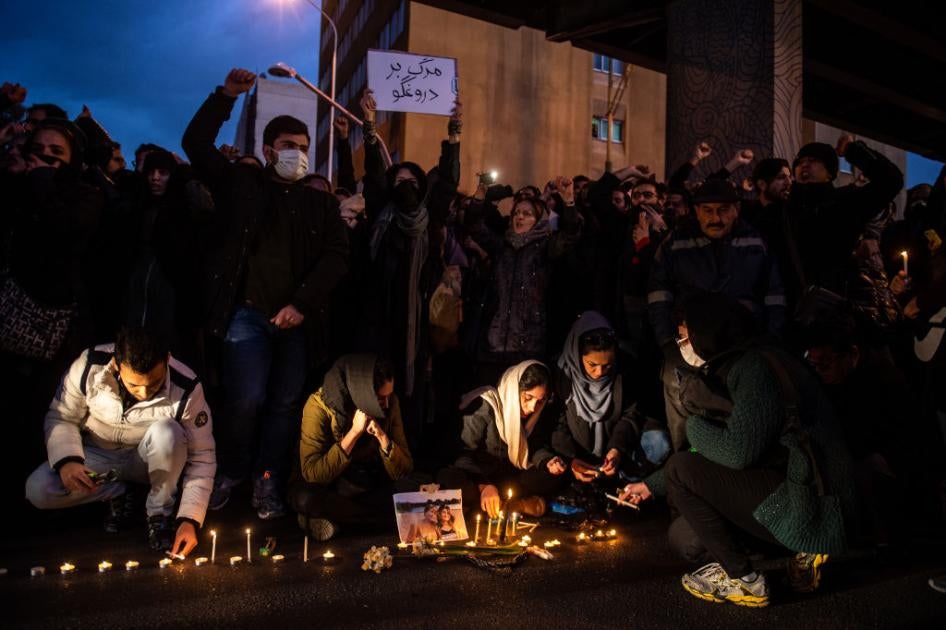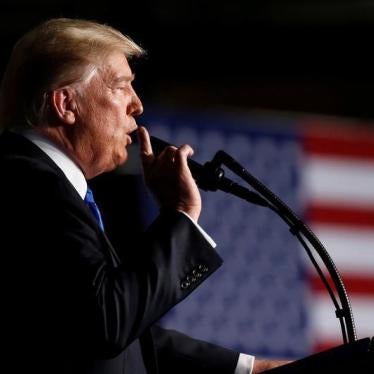These are tumultuous times in Tehran. On the evening of Jan. 11, protests broke out in front of two of the most prominent universities in Tehran, after the head of Iran’s military acknowledged that it accidentally shot down Ukrainian Airlines Flight 752, carrying 176 passengers, including more than a dozen Iranian students living in Canada.
Protesters were furious at the government’s three-day delay in announcing what should have been known immediately after the crash. They chanted demands for the resignation of responsible officials, including Supreme Leader Ayatollah Ali Khamenei, who is commander in chief of Iran’s armed forces.
It’s been a dizzying turn of events. Just days before the tragedy, the Iranian government was hoping to capitalize on massive crowds at the funeral for General Qassem Soleimani, the Islamic Revolutionary Guards Corps’s Quds Force commander killed in a U.S. drone strike near the Baghdad airport in Iraq on Jan. 3, and the launch of Iranian’s retaliatory missiles on Jan. 7. Instead, the government again has become the target of widespread criticism for what looks like incompetence and a cover-up over responsibility for the deaths of the airliner passengers. They included young mothers, children and at least two newly-married couples who were returning from holidays in Iran.
Accepting responsibility for this disastrous incident, offering full compensation to victims, and making a commitment to conduct an investigation and hold those responsible accountable — all promised in President Hassan Rouhani’s Jan. 11 statement — are the minimum measures expected from a government in such a situation.
Three days of obfuscation and even threats to journalists who questioned the government’s previous narratives, however, is perhaps why so many Iranians doubt the government’s sincerity in its apology and pledges. Several Iranian social media users have said they are afraid to think that if the plane passengers did not have foreign nationalities and the international community was not pressuring Iran to come clean, the public never would have been told the actual cause of the crash.
These protests have continued in several other cities and at universities, including in Isfahan for a few days, during which security forces used tear gas and batons to contain and crack down against any attempt to expand the protests. Less than two months ago, security forces brutally repressed protests over an abrupt increase in fuel prices that had spread to more than 100 cities across the country, both in rural areas and on the outskirts of big cities. Video footage from November appears to reveal that the security forces violently targeted protesters who did not pose any imminent threat to life, and authorities have refused to accept responsibility or even publicly account for the total number of people killed.
In other words, over the past two months the government has faced street protests with demands supported by large groups of Iranians. The two waves of protests seem to include different demographics — one group connected to university-educated students and the ideals of the urban middle class, and the other largely consisting of working- and lower middle-class communities struggling amid deteriorating economic conditions. Both of these groups, however, say they are calling out the government’s indifference to its citizens’ suffering and the government’s total lack of accountability for its systematic wrongdoing.
On Jan. 17 and during the Friday prayer sermon, Ayatollah Khamenei dismissed the criticism protestors had raised. Even if the government manages to silence the voices of those criticizing the government over the airplane catastrophe, it most likely will only exacerbate people’s feelings of being marginalized by their own government. And that feeling would deepen the authorities’ domestic legitimacy crisis.
In the past two years, U.S. policy toward Iran also has played a negative role in addressing the human rights situation, including by imposing increasingly broad sanctions that harm Iranians’ right to health care. But it is Iran’s government that has the key responsibility to protect its citizens’ rights, and it is the Iranian government that has failed to do so and sowed so much distrust between rulers and the ruled. What the Iranian government needs most in this volatile time is the trust of its own people — and it needs to actually commit to a transparent, rights-respecting form of governance.
There’s an expression among Iranians and many other Shia Muslims that the “sigh of the innocent” will go after the “cruel” one day. I wonder if any Iranian government officials feel that this “sigh” from the victims of Iran’s past repression, including those killed in November, has come back to haunt them.









